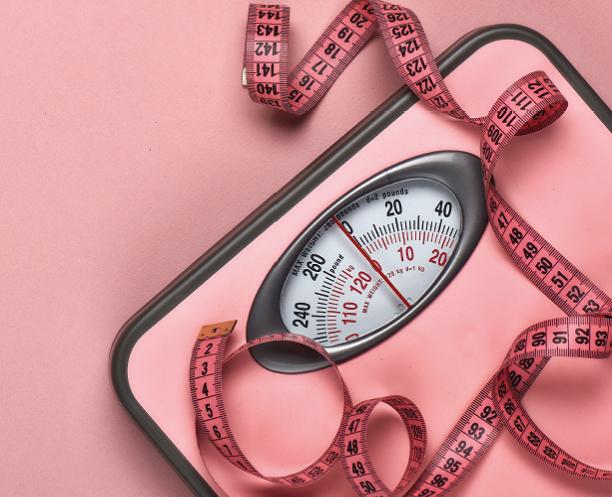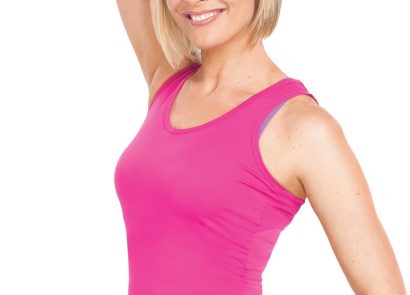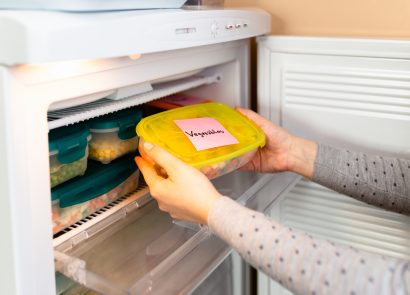‘Fallen off the wagon’, ‘The diet starts on Monday’ – do these phrases sound familiar? If so, you could be riding on a wave of a guilt cycle. We turned to nutrition consultant Dr Emilia Thompson to tell us how to stop it in its tracks
Your alarm didn’t go off, then you missed that morning run that you promised yourself the night before, and on the way to work, you grabbed a caramel frappe with whipped cream and a bacon sandwich to tide you over ’till lunch. If after the last bite, you’re Googling the quickest way to burn off a buttie by 11am, then you’re probably in the throes of a guilt cycle. There are a mirage of things that contribute to the emotional anxiety about what, or even how much we’ve eaten, our lack of motivation to exercise and our general levels of productivity. With nutritionist Dr Emilia Thompson, a former bikini athlete, turned nutrition consultant, life coach and sports nutrition lecturer, (emilia.fitness.co.uk), we find out why we feel so anxious about it all.
How it plays out
There are normally three stages to your guilt cycle. ‘I should do this’, then the action/inaction, and then the feeling of regret. Each stage feeds off each other, but the aim of the guilt cycle game is approval, whether that be from yourself, or others. Most of the time, the reason behind the inaction is the pressure we put on ourselves (psychcentral.com). In fact, you can pile so much on, that it leaves you frozen and unable to act – the ultimate Catch 22. Seeking approval, whether that be from yourself or others, can consume your thoughts and actions if we don’t find out the reason behind why we feel guilty, but unravelling this can be tricky if we don’t know the source.
Ditch the #highlights
If your expectations of yourself tend to be influenced by what other people are doing, then you may need to take a step back and protect your mindset more. “Social media can be a positive influence, but it can also exacerbate negative feelings that we have towards ourselves,” says Emilia. “In a world where reality stars promote diet fads and photos are filtered, it can be difficult to decipher what’s real. There is evidence from the Flinders University in Australia that supports the role of social media in disordered eating habits and in fact, social media networking is related to disordered eating and image concerns.” It’s not easy to remind ourselves that Instagram isn’t #reality, we can curate our social media feeds by following accounts that don’t set unrealistic expectations of ourselves.
Find the root
The chances are that our ancestors probably wouldn’t feel like a failure for not attending a Body Pump Class, or the caveman equivalent, (think rocks for weights), so where has our guilt cycle originated from? “In The Journal of Social Psychology, it was suggested that in general, women tend to report more feelings of guilt towards food than men do,” says Emilia. “There has been a generational movement towards thinness being an indicator of success, with the media tending to celebrate it and shaming bodies that don’t conform to that narrative. As a result, diet culture has become a money-making industry that demonises foods that are not traditionally diet-friendly.”
Bin the health halos
If you’re struggling with food guilt, then you’ve probably put foods into two categories: good and bad. “Removing health halos and negative word choices with food is essential,” says Emilia. “Phrases such as ‘cheat’ and ‘bad foods’ automatically attaches guilt when you eat them, but a positive word choice is just as detrimental because it insinuates that some foods have greater morality than others. For example, words like ‘clean’ need to be scrapped. “That food that you don’t allow ever, try having it every single day for a week. It soon loses the power when you realise it’s just a portion of food, like everything else.”
Check your goals
Finding a way to achieve your targets without placing too much pressure on yourself is vital. “Removing outcome-based goals, for example, goalweights, is a great place to start,” says Emilia. “Focus more on process-based achievements and changing your daily habits. Instead of saying ‘I want to be Xkg’, set yourself goals for healthy habits that you can achieve each week,” says Emilia. “This might be something like consuming one protein source and vegetables at each meal, or going to the gym four times in the week. Have more outcome measures rather than body weight, such as how you feel, progress in your fitness regime, energy levels and sleep patterns.”
Ditch the #highlights
If your expectations of yourself tend to be influenced by what other people are doing, then you may need to take a step back and protect your mindset more. “Social media can be a positive influence, but it can also exacerbate negative feelings that we have towards ourselves,” says Emilia. “In a world where reality stars promote diet fads and photos are filtered, it can be difficult to decipher what’s real. There is evidence from the Flinders University in Australia that supports the role of social media in disordered eating habits and in fact, social media networking is related to disordered eating and image concerns.” It’s not easy to remind ourselves that Instagram isn’t #reality, we can curate our social media feeds by following accounts that don’t set unrealistic expectations of ourselves.
Make ‘wellness’ more about you
Getting up at 5am, hitting the gym and then making a matcha smoothie for breakfast is seen as the ideal of ‘wellness’, but it’s reality. “Social media also leads to us comparing ‘upwards’, to people who excel in their field, be that fitness or otherwise,” says Emilia. “Upwards comparison can be motivating, but it can also be demoralising. Ultimately, we choose what we expose ourselves to.” Write down the expectations that you place on yourself and then why. Once you track down the source of your guilt, it will become a lot easier to ease the pressure off yourself.




















